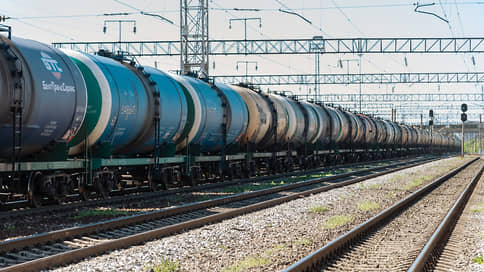Interference is not harmful – Newspaper Kommersant No. 66 (7511) dated 04/17/2023
[ad_1]

According to Kommersant, despite the EU embargo and the price ceiling for petroleum products, market participants increased gasoline exports by almost 40% year-on-year to 1.8 million tons in three and a half months. Russia, which was its main supplier to Europe before the sanctions, reduced diesel exports by 3% amid an increase in shipments to the domestic market. According to experts, gasoline supplies abroad are growing amid a surplus of goods and high margins on exports. In addition, the sanctions have led to the spread of the practice of blending gasoline with naphtha, which allows such a product to be sold at the upper limit of the price ceiling.
Gasoline exports from the beginning of the year to mid-April increased by 38%, to about 1.8 million tons, sources familiar with the statistics told Kommersant. During this period, production increased to 11.8 million tons, which exceeds last year’s figures by 5%, and gasoline reserves at refineries and tank farms exceeded 2 million tons. The exchange price of gasoline resumed growth only last week, and before that it was declining against the backdrop of a surplus of goods, despite the growth of netback (see “Kommersant” dated April 10).
On February 5, the EU and the G7 countries introduced a price ceiling for the export of Russian oil products, which implies two price limits: $100 per barrel for gasoline and diesel fuel and $45 per barrel for naphtha and dark oil products. Shipowners and insurance companies are prohibited from providing services for the transportation of Russian oil products under contracts that do not provide for the conditions of the marginal price.
According to Reuters, the growth in gasoline exports in the first quarter was due to an increase in deliveries to African countries (812 thousand tons), in particular, Nigeria, Tunisia and Libya, the first of which accounted for the main share of 488 thousand tons.
According to Kommersant’s sources, at the beginning of the year, naphtha was trading above the ceiling set for it at $45 per barrel, because of which Russian suppliers could suffer losses when exporting it.
According to Reuters, this has led to the practice of blending naphtha with gasoline, which allows the resulting product to be sold at a price cap of $100 a barrel. Many markets in Africa and Latin America, where Russian oil products are now supplied, are less demanding on the composition of the fuel than previous buyers in Europe.
Back in March last year, Russian refineries faced problems exporting petroleum products due to EU and US sanctions against Russia for starting hostilities in Ukraine, as many foreign traders stopped buying fuel from Russia. As a result, due to overstocking in March and April 2022, there was a significant drop in oil refining in the Russian Federation. This forced Russian oil companies to redirect supplies mainly to Asia.
Before the sanctions, Russia was the main supplier of diesel fuel to Europe, but in February the EU imposed an embargo on this product as well. However, the restriction has so far had little effect on shipments: since the beginning of the year, diesel fuel exports from the Russian Federation have decreased by 3%, to about 9.5 million tons, with a production of 23.8 million tons (an increase of 7.5%). The drop was offset by an increase in deliveries to the domestic market, and in the first third of April, diesel fuel exports increased by 8.5% year-on-year, to 894,000 tons. As a result, in early April, oilmen increased their daily processing compared to the March averages.
Alexander NovakDeputy Prime Minister, March 28:
“Most of our energy resources have been redirected to other markets, to the markets of friendly countries.”
In general, oil refining in the Russian Federation remains profitable, despite the change in damper formulas since April, Mikhail Turukalov, an expert on the fuel market, believes: refineries continue to receive quite acceptable margins in the domestic market and in exports. According to him, the start of the EU embargo in February “caused logistical problems”, but now we can conclude that oil and oil products exports “are redirected to other markets, albeit with lost profits.”
If we take into account the preliminary dampers in April and export discounts for petroleum products of Russian origin, it is much more profitable to export gasoline than to sell it on the domestic market, adds Mr. Turukalov. Delivery to foreign markets can bring 10-13 thousand rubles. per ton more than domestic sales at current exchange prices. With diesel fuel, the expert clarifies, the opposite situation has developed: exchange prices are higher than netback by about 8 thousand rubles. per ton.
[ad_2]
Source link





